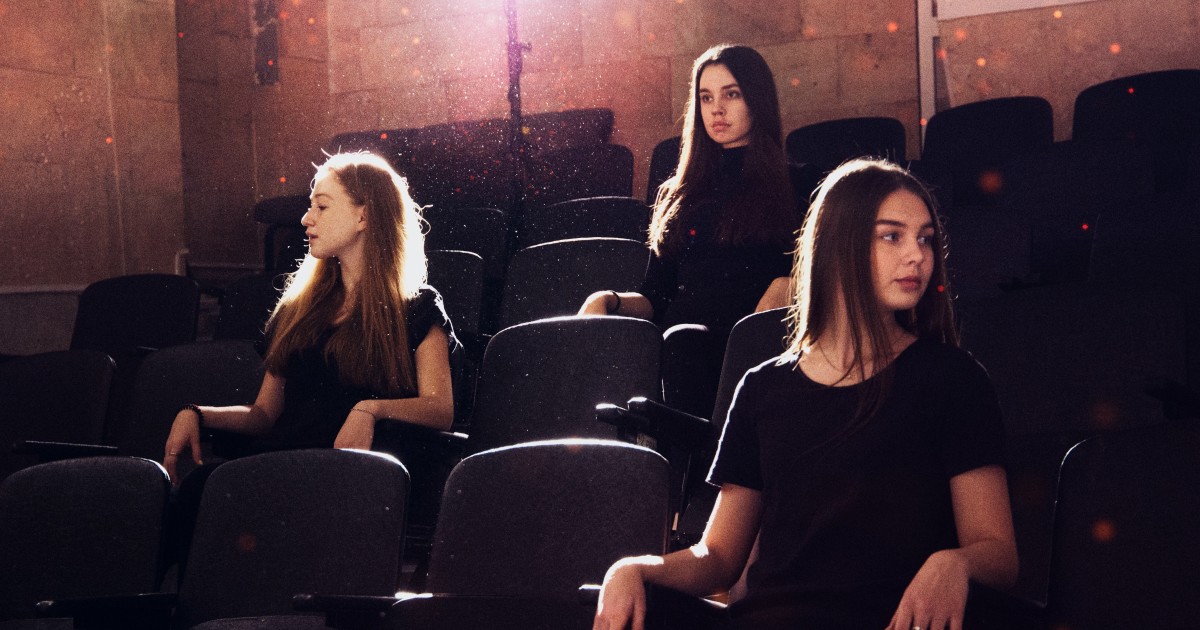
Is a Master's in Educational Theatre Worth it?
If you want to teach theatre in schools, is a [...]

Want to do something more with your theatre practice? Maybe you’re a director looking to bring productions to incarcerated populations, an actor ready to ditch the audition grind and transition into teaching, or a puppeteer with ideas to bring children’s stories to life onstage. A graduate degree could facilitate any of these career changes, but which master’s program is right for you?
To identify the program that will provide you with the most enriching experiences and practical tools, you first need to determine which community you hope to serve.
The CUNY School of Professional Studies, home to the United States’ first-ever Master of Arts in Applied Theatre, defines “applied theatre” as “the use of theatre and drama in a wide variety of nontraditional contexts and venues.” Sometimes these “contexts” can be causes rather than places, such as health care, the criminal justice system, or housing equity. “Educational theatre” often encompasses applied theatre practices in addition to traditional classroom teaching.
If you hope to bring theatre to nontraditional settings — such as colleges, museums, prisons, shelters, or hospitals — or want to teach theatre in schools as a teaching artist or an after-school theatre teacher, you might consider degrees in applied theatre or educational theatre; these degrees don’t lead to teacher certification, but in most instances certification is required only if you seek to teach theatre full-time in a public school.
Master’s programs in Applied Theatre or Educational Theatre are typically offered as a Master of Arts (Master of Arts). However, there are some exceptions; for example, at Emerson College, Master of Arts students may take additional credits in order to gain a Master of Fine Arts in Theatre Education and Applied Theatre. Either way, educational theatre, and applied theatre curricula are strongly rooted in educational, social, and artistic theory. Programs tend to embrace ensemble-based learning while honoring personal artistic development (through elective courses in directing, playwriting, and more) as well as individual research interests.
To become a full-time classroom theatre teacher, you’ll want to select a master’s program that provides a pathway to teacher certification. Often, theatre teacher certification is offered as a “track” within an educational theatre or applied theatre master’s program. Occasionally, these programs may also be called “theatre education.” Usually, certification students receive the same range of academic offerings as non-certification students. Additionally, their curricula include any courses and field experiences required for certification.
It is important to remember that schools typically tailor their certification programs to the state in which they are located. For example, the Adelphi University Master of Arts in Educational Theatre (P-12) program will prepare you to earn certification in New York state, but if your ultimate goal is to teach in Washington, D.C. schools, you may want to consider Catholic University of America’s Master of Arts in Theatre Education (Theatre Educator track) instead.
Many programs offer flexible trajectories to accommodate your teaching goals. For example, if you are looking to teach theatre in conjunction with teaching another subject, New York University offers the option to pair educational theatre with a dual certification in Social Studies grades 7 to 12or in English grades 7 to 12.
The City College of New York offers a Master of Science in Education, Educational Theatre with various specializations from which to choose, depending on where you are in your career.
For example, a less experienced or entry level theatre teacher would need to follow Strain A (designed for students who currently lack initial teaching certification), while a teacher with an initial certification in another subject area may opt to follow Strain B. Often, teacher certification requires student teaching and other field experience, so it is essential to choose a program that will accommodate your previous and/or current teaching experience.
If you are specifically interested in creating theatre for youth, the best route for graduate study is to pursue a Master of Fine Arts. Because there are several strong Master of Fine Arts programs in this area, attending one of these programs is a great way to attain a terminal degree (which is particularly useful if you eventually plan to teach at the college or graduate level).
While all Master of Fine Arts programs focused on creating theatre for youth is strongly rooted in educational and artistic theory, different programs have different emphases. Master of Fine Arts programs titled “Theatre for Young Audiences” tend to offer students strong production opportunities; for example, the program at the University of Hawaii is strongly tied to the Kennedy Theatre, where youth are “ushered into magical worlds” brought to life by “Asian and Hawaiian theatre techniques.”
While also offering students strong practical experiences, Master of Fine Arts programs in “Theatre for Youth” tend to have stronger drama-in-education-and-activism foci; for example, Arizona State University’s handbook for its Master of Fine Arts in Theatre for Youth states that its top goal is to “create theatre and performances to inspire, educate, transform, heal, and entertain.”
There are some programs that serve a multitude of community-engaged theatre purposes. The University of Texas at Austin offers a Master of Fine Arts in Drama and Theatre for Youth and Communities that ambitiously “draws on practice and scholarship from many fields such as theatre/drama, feminist studies, performance studies, education and critical pedagogy, youth development and cultural studies.” Eastern Michigan University offers a Master of Fine Arts in Applied Theatre and Theatre for the Young that welcomes practitioners interested in drama/theatre for “development and educational purposes,” “community engagement,” “young participants,” and “young and intergenerational audiences.” If graduate school is your playground for exploring community-engaged theatre, perhaps such universal programming is right for you.
However, if you have specific career goals, it is vital to select the program that will best poise you for success. If you plan to teach in a classroom (and especially in a public school classroom), why choose a program without certification options? If your ultimate goal is to teach at the college level, why choose anything other than a Master of Fine Arts? If you want to work in the professional theatre, why select a program with minimal hands-on opportunities? Undeniably, the smartest choice for your goals is the best choice for you.
Don’t rush it! There are plenty of ways to continue exploring community-engaged theatre without attending graduate school. Interview with a teaching artist company. Ask a classroom theatre teacher if you can shadow her for a day. Attend your local children’s theater’s latest production. Remember, graduate school is your opportunity to devote yourself to your greatest passion. If you’re still identifying your passion, don’t sweat it. Keep practicing, working, and playing out in the world. When you land on a community you simply cannot leave, you’ll be ready to dive into graduate study.
Questions or feedback? Email editor@noodle.com

If you want to teach theatre in schools, is a [...]
Categorized as: Art & Art History, Art & Design